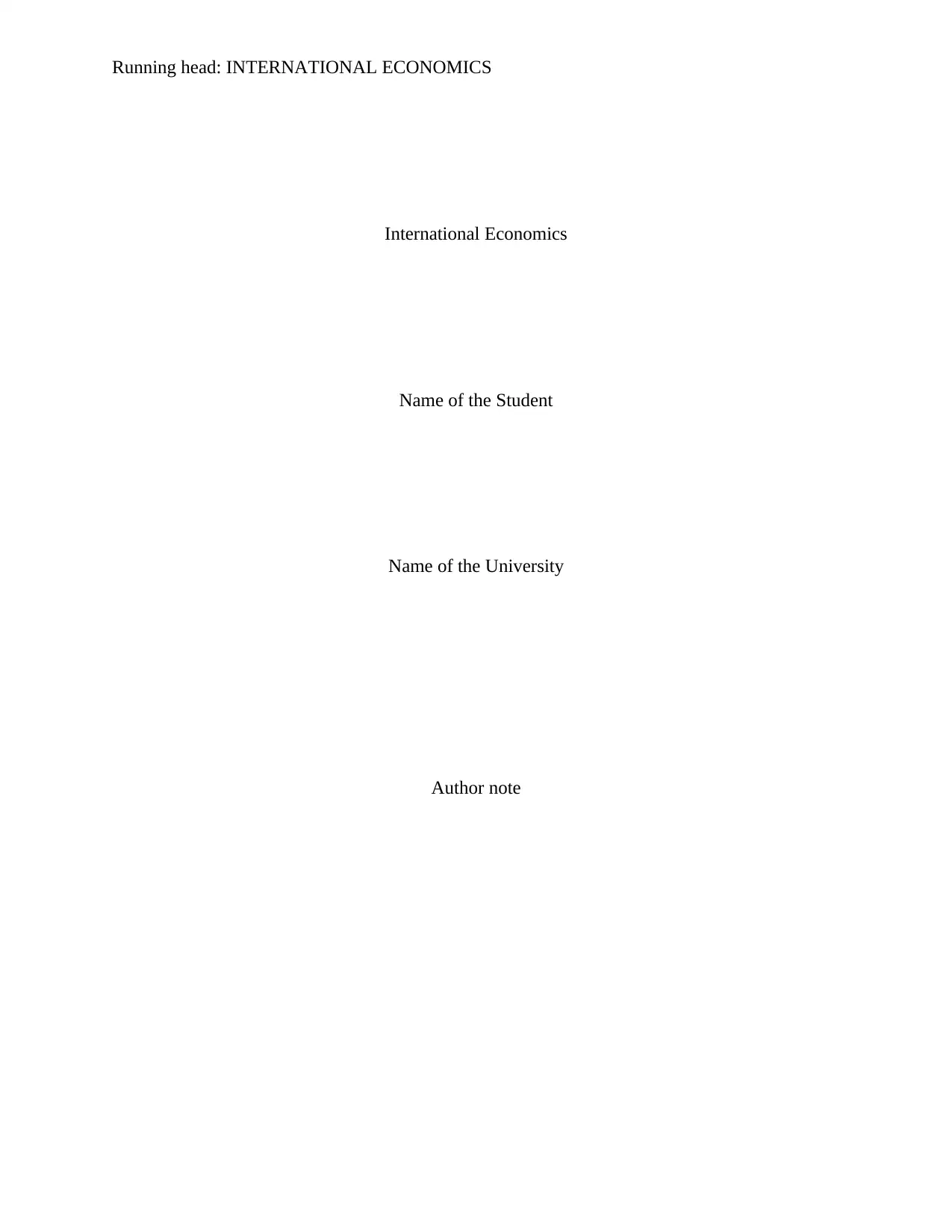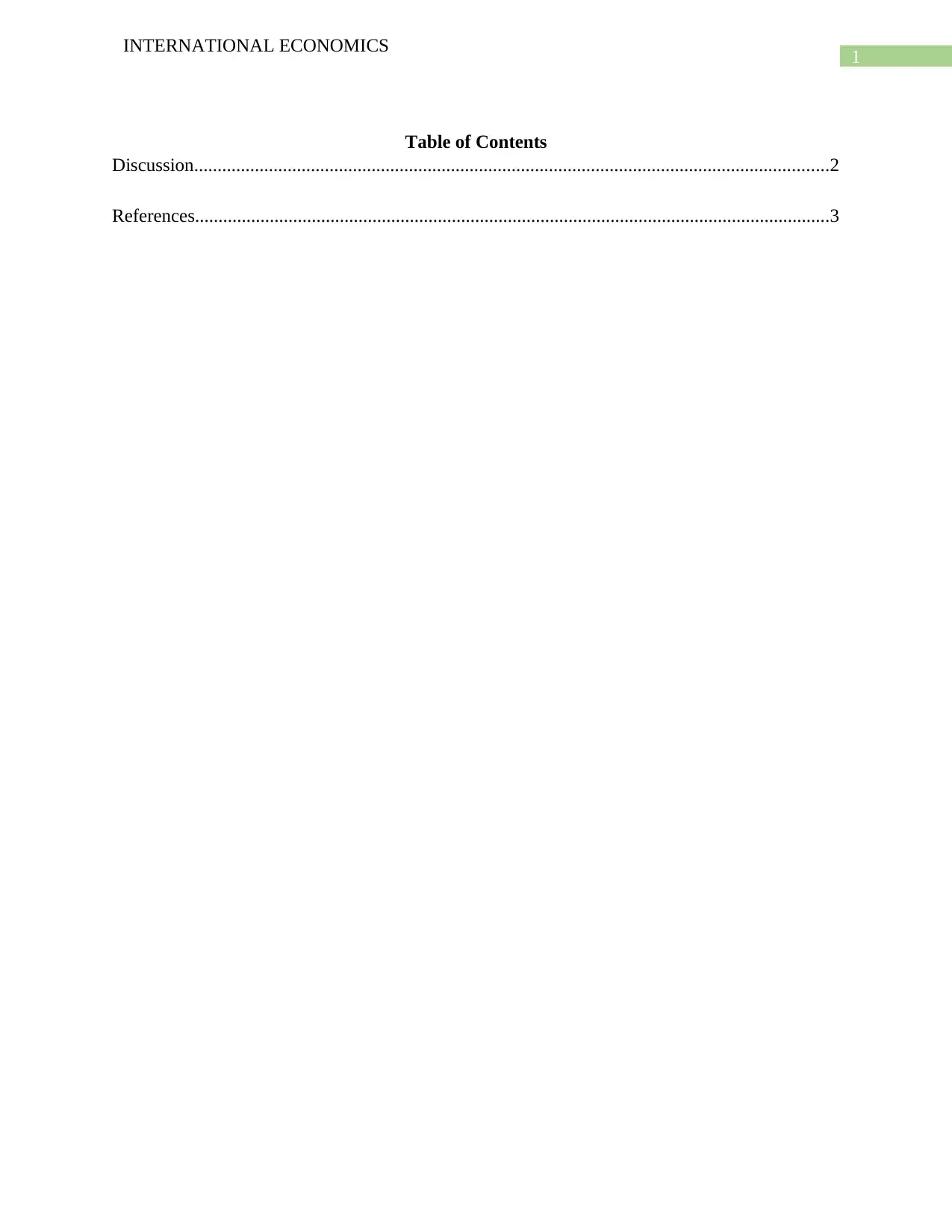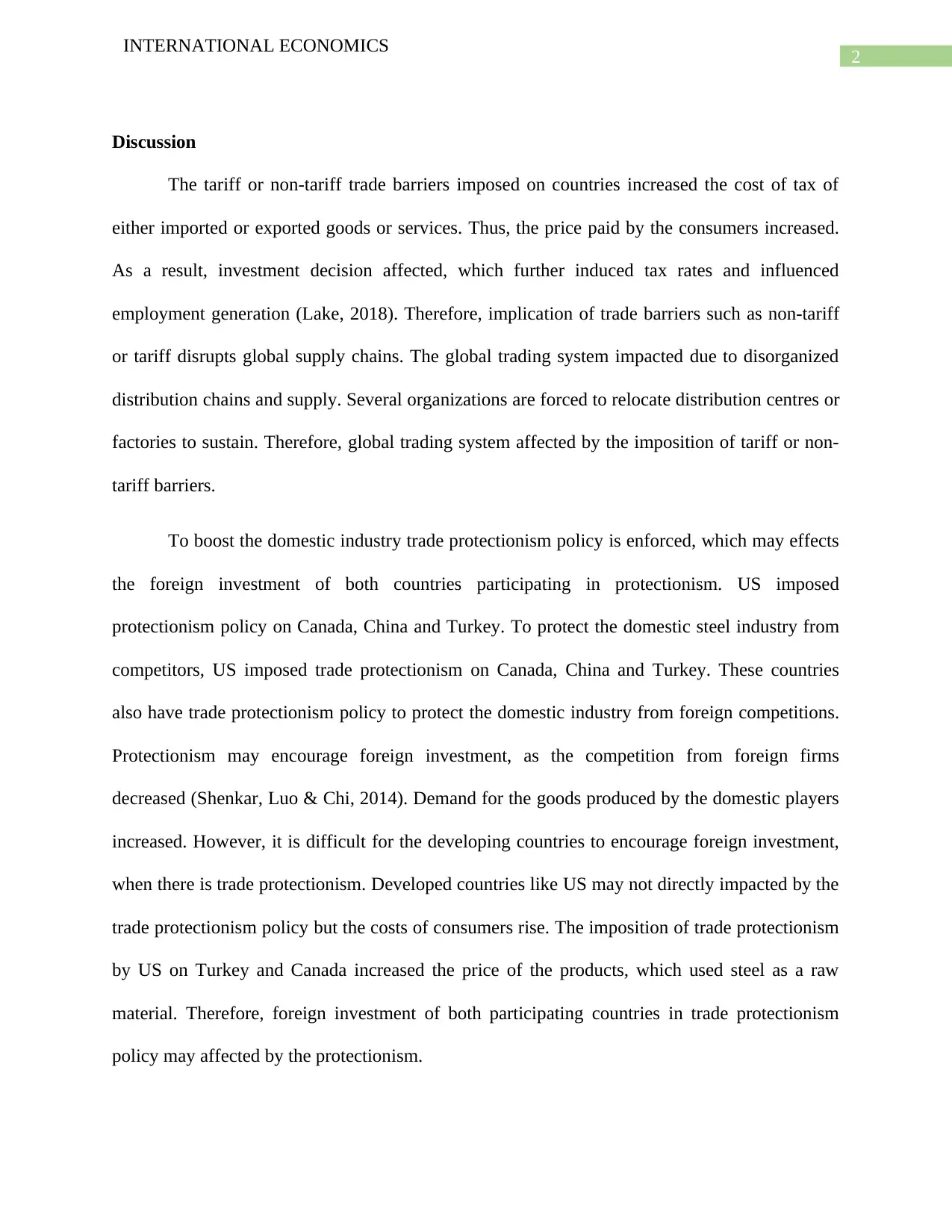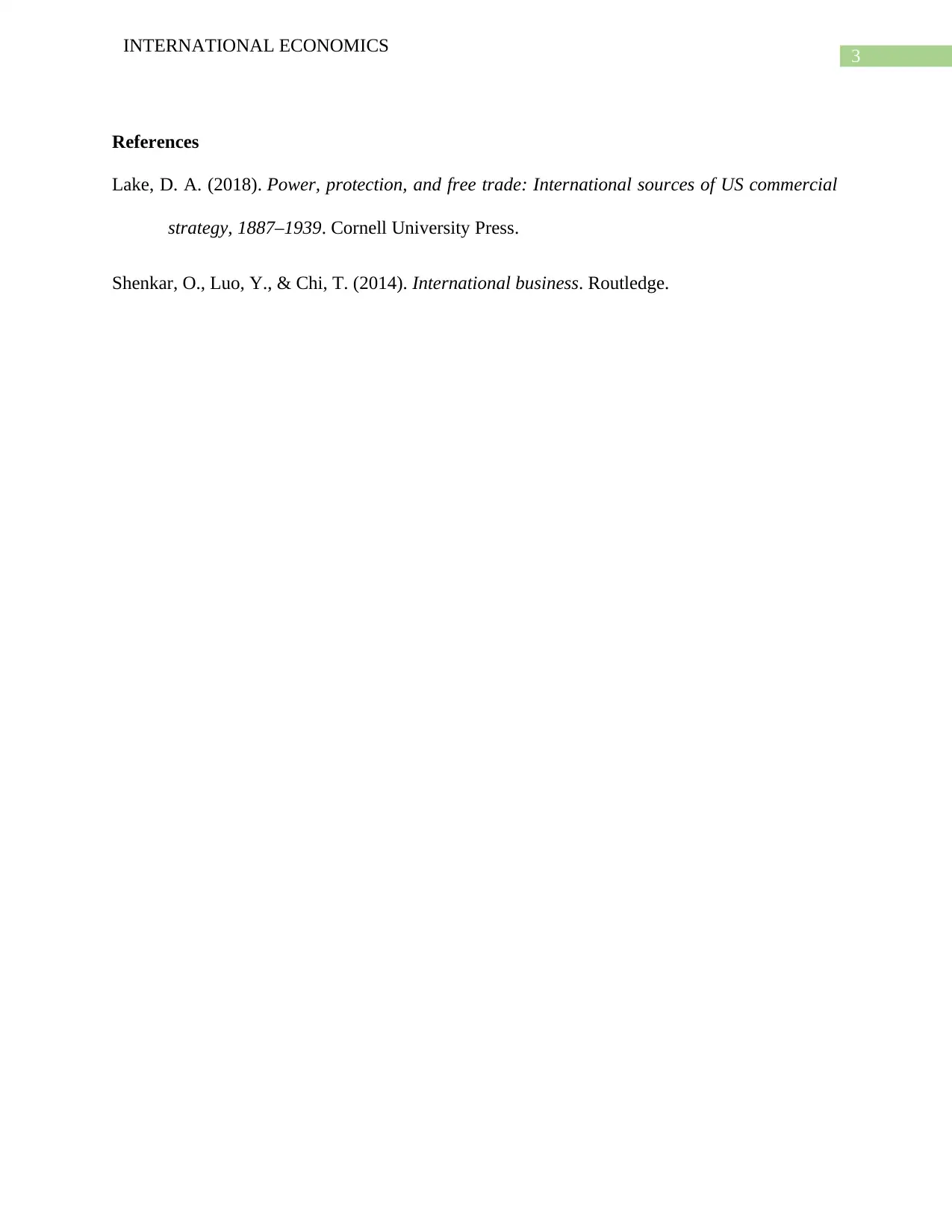International Economics: Impact of Tariffs on Developing Countries
VerifiedAdded on 2022/10/06
|4
|385
|20
Discussion Board Post
AI Summary
This discussion post explores the implications of trade barriers, specifically tariffs, on both developed and developing countries. The author examines the impact of protectionist policies, such as those imposed by the US, on countries like Canada, China, and Turkey, focusing on the effects on the domestic steel industry and the broader implications for global supply chains and foreign investment. The post references scholarly sources to support the analysis of how tariffs affect consumer prices, investment decisions, and overall economic growth, particularly in developing nations. It also addresses the potential benefits and drawbacks of protectionism, concluding with an evaluation of whether a developed country should eliminate tariffs, supported by economic theories and evidence.
1 out of 4










![[object Object]](/_next/static/media/star-bottom.7253800d.svg)